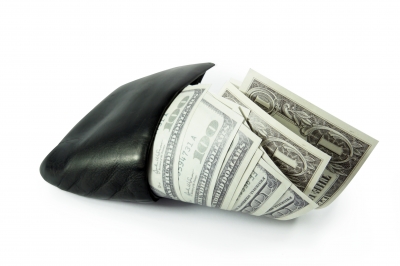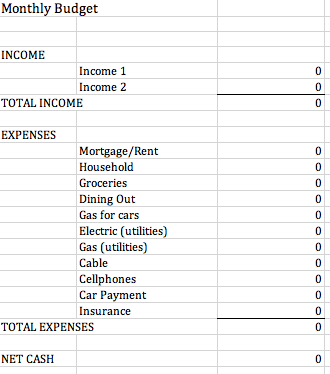Coronavirus-Related Financial Help Reference Post
While America waits for Congress to act on the next version of a relief bill, President Trump has signed four executive orders that may, or may not, help in the interim. You can read the details here, as well as a follow-up regarding a rent payment moratorium here.
Savings Beagle’s overarching mission has always been to assist readers with strengthening their financial situation through education on basic personal finance matters, providing information on economic trends and passing along money-saving tips and strategies.
During these difficult financial times, our focus remains the same, but with a little more emphasis on financial matters directly related to coronavirus.
First and foremost, we should all make a more concerted effort to save.
Having a little financial cushion is vital during these turbulent economic times.
And even the smallest money-saving opportunities, when added together, will make a difference.
Savings Beagle Discussion Board
The Savings Beagle Discussion Board is where many of our informational posts and money-saving tips and strategies can be found.
A great place to start is the Coronavirus Related Changes, Offers and Deals topic.
The Saving Money section is where we post individual deals and strategies to keep more of your money in your pocket.
If you’re an Amazon shopper, the Amazon Savings Opportunities section is where we list ongoing credit card saving deals specific to Amazon purchases, as well as, category-specific savings deals when they’re promoted. It seems we regularly see specific dollar savings opportunities on categories such as household essentials, beauty and personal care and baby products. These are usually limited-time promotions, so you have to jump on them quickly if you’re interested.
The Streaming TV section provides information on the various streaming television options that will keep you entertained during your time at home while, potentially, saving you money.
And the How’s the Economy section, specifically the How’s the Economy Doing? topic, will direct you to our How’s the Economy? page where a real-time economic data widget will provide insights on how the economy is doing. It’s not going to provide commentary, but the statistics will provide an overview of the current state of the U.S. economy. As a heads-up, don’t expect the numbers to be very good as the new economic stats are loaded over the coming weeks.
We welcome and encourage reader interaction on all the sections and topics of the Discussion Board. Reader insights and contributions can be invaluable when it comes to helping others better their financial situations.
You can contribute as a guest, or register as a member, creating a personalized profile to which you can add a profile pic, provide biographical information, a signature line, as well as website and social media links.
During this difficult time, Savings Beagle is here to help in any way we can.
We’ll continue publishing money-saving deals on the site and on the Discussion Board as well as our own commentary on current financial-related actions and trends of which we all should be aware.
Additionally, we’ll post the most important coronavirus-related financial information below so it’s easily accessible when needed.
And finally, let us know how you’re doing during these difficult economic times, and if there’s any information we don’t provide that you’d find helpful. We’ll do our best to help out.
Coronavirus-Related Financial Information
Individual Relief Payments
- $1,200 per adult, married couples eligible for $2,400
- An additional $500 per child under 17
- A married couple with two children would receive $3,400
Payments will scale down for individuals who make more than $75,000 per year, $112,500 for heads of household (usually single parents) and married couples that make more than $150,000 per year.
Income will be based on 2019 federal tax returns – 2018 federal tax returns if a 2019 return has not yet been filed.
Individuals making more than $99,000, and married couples that make more than $198,000 will not be eligible for direct assistance.
Money should be distributed via direct deposit to bank accounts on file with the IRS within three weeks of President Trump signing the bill. If you don’t have a bank account linked to the IRS, paper checks will likely be mailed, taking longer to receive.
You must have a Social Security number to get a payment. Dependents on someone else’s tax return who aren’t a child will not get a payment.
3/27/2020 4:30 p.m. – The bill has passed the U.S. House of Representatives without changes and has been signed into law.
Small Business Relief
The Coronavirus Aid, Relief, and Economic Security Act that was just passed included $350 billion to help small businesses keep workers employed.
The loans that will be provided by local banks, and backed by the federal dollars allotted in the bill, may be forgiven if borrowers maintain their payrolls during the crisis or restore their payrolls afterward.
As with any legislative plan, the devil is in the details. And there are still some details to be smoothed out.
But, the bottom line of this program, keep people employed during the current economic downturn, is the best option for both small and medium-sized businesses and the people they employ to make it through this situation.
If you’re a small business owner – and it appears even individuals who operate as a sole proprietor, independent contractor or are considered self-employed will qualify for this program – you want to look at this program.
The U.S. Chamber of Commerce has published a guide and checklist for this program. I’ll provide its link below. Talk with your banker or local Chamber of Commerce this coming week if you think this program can help you and your workers.
U.S. Chamber of Commerce Coronavirus Emergency Loans Small Business Guide and Checklist Document
Unemployment Benefits
If you are one of the millions who have been laid off as a result of the coronavirus pandemic – or for any reason, really – there are and will be benefits to help.
First, you need to contact your local/state unemployment office to begin the application process. Unfortunately, reports indicate this can be a frustrating experience due to the volume of unemployed accessing the systems. Keep at the application process. The benefits are there for you, and the recently passed federal relief bill will provide additional assistance.
Unemployment insurance benefits vary by state, so you’ll need to check with your specific state to determine base benefits. However, the federal relief bill has added to the benefits offered by states.
Specifically, the federal relief bill will:
- Expand eligibility to include people who are not typically eligible for benefits, including self-employed people, those seeking part-time employment and independent contractors.
- Include people who are diagnosed with coronavirus, have a household member with coronavirus or are unable to go to work because of quarantines.
- Increase unemployment assistance in every state by $600 a week for up to four months.
- Lengthen the duration of benefits by an additional 13 weeks above what individual states provide.
Additionally, these expanded benefits/eligibility should extend to those who were receiving unemployment benefits before the coronavirus outbreak and passage of the relief bill.
Again, unemployment benefits begin with application to your local/state unemployment office. The expansion/eligibility of benefits should be automatically recognized at that level.
Federal Tax Payment – and Filing – Deadline Extended
The federal government is giving taxpayers – both individuals and corporations – an extra 90 days to file and pay federal taxes.
Filings and payments will now be due July 15, 2020.
This is for federal tax filing/payments only. Check with your state for any payment/filing extensions it may be offering.
Federal Student Loan Payment Suspension
Update 4/17/20 – The federal government is extending the suspension of monthly payments and interest accruals on federally held student loans to September 30, 2020.
The federal government has temporarily suspended all payments on federally held student loans.
According to President Trump, the suspension will be in effect for “at least the next 60 days, and if we need more, we’ll extend that.”
Keep in mind, this is for federally held student loans only.
I would encourage you to contact your lender for more information, or check its website, before skipping your upcoming payments.
Please share this post to ensure as many people as possible have access to this information.


:max_bytes(150000):strip_icc()/Lying-56a109583df78cafdaa84d47.jpg?w=150&resize=150,150&ssl=1)

Does those on social security receive anything?
Jane,
At this point, there do not seem to be any restrictions with regard to individuals receiving Social Security – or other federal or state – benefits. Those on Social Security should receive checks in the amounts noted above on the timeline listed.
Remember, though, the U.S. House of Representatives still needs to consider and vote on this bill. Specifics of the relief legislation could change.
Thanks for your question.
Hope this response helps.